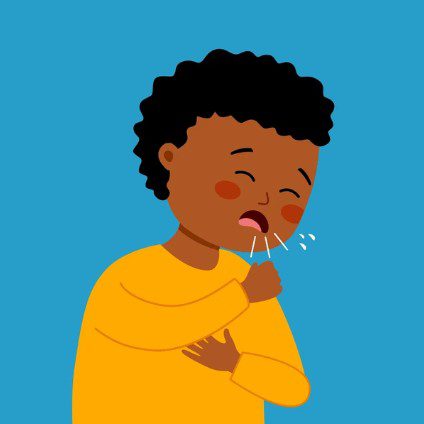There’s a stomach bug on the move!! In the last few weeks we have seen a huge increase in calls for viral gastroenteritis, or the “stomach bug”. Because it seems to be affecting kids both older and younger, and spreading at a rapid rate, we decided to do a quick overview to help answer some questions you might have if it hits your house.
Symptoms:
- Abdominal Pain
- Cramps
- Nausea/vomiting
- Diarrhea
- Poor appetite
- Irritability
- Low grade fever
Treatment:
Normally with a stomach bug the vomiting will be worse (more severe) in the first few hours. This happens when the child is emptying their stomach of all contents, and sometimes continues even after they have nothing in their stomach to vomit. During this period, if the vomiting is frequent, we recommend letting your child’s stomach “rest”, meaning not giving them any food or liquids until the vomiting has stopped or become less frequent. After this, we recommend doing a fluid challenge. This consists of very small amounts of water or electrolyte replacement fluids (Pedialyte for younger children and babies, sugar free Gatorade/Powerade for older children) given over an extended period of time. Meaning one ounce every 45-60 minutes. If your child can keep these small amounts of fluids down you can gradually increase the fluid amount and frequency. Once your child is consistently holding fluids down you can resume a normally diet, starting with complex carbohydrates like bananas, crackers, and toast while continuing rehydration fluids. Temporarily avoid overly fatty and sugary food and drinks. Some children will not tolerate dairy products well with a stomach bug so adjust diet accordingly if vomiting/diarrhea resumes. If applicable, breastfeeding is encouraged once vomiting has slowed. Typically with the stomach bug, the vomiting lasts for a few days and then progresses to diarrhea. Your child may have loose stools for up to two weeks. Please continue to avoid sugary foods/drinks as these tend to make the diarrhea worse. Children may return to school once vomiting has stopped and diarrhea begins to resolve. We do not recommend using over the counter anti-diarrheal medications such as Imodium, as these tend to trap the virus in your child’s intestines and can actually make the infection last longer.
Viral gastroenteritis is extremely contagious, which is why it tends to run through entire families! Prevent the spread by washing hands frequently, not sharing food or drinks, and disinfecting surfaces.
When to seek medical care:
- You feel your child is showing signs of dehydration (urinating less than 3 times in a 24 hours period, dry mouth and cracked lips, crying without tears)
- Severe abdominal pain (your child cannot stand up straight and walk around, crying in the fetal position)
- High fever
- Diarrhea that lasts longer than two weeks, or stools containing blood, or pus
- Your child is acting lethargic
As always, please do not hesitate to call our office if you have any questions or concerns about your child and whether or not they need to be seen!




